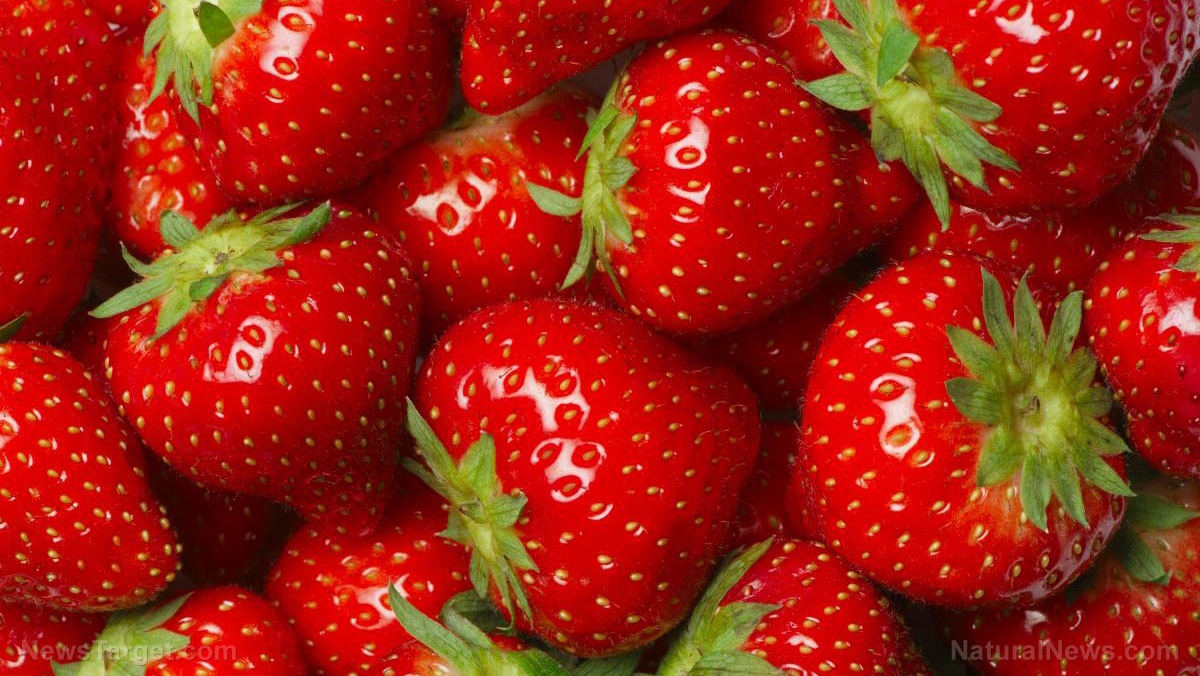
Advertisement
Strawberries (Fragaria ananassa) are super fruits that come with a lot of health benefits in every bite. They are packed with nutrients and antioxidants that are very helpful to your body. Research has shown that eating 500 grams of strawberries daily addresses inflammation and provides your body with key antioxidants. That’s about 10 to 15 pieces of strawberries you can snack on!
Back in 2010, a study found that strawberries decreased certain factors of cardiovascular risk in volunteers with metabolic syndrome. A total of 27 subjects with metabolic syndrome were given either strawberries or plain water to drink for a period of eight weeks. The strawberry group reported lower bad cholesterol levels and reduced total cholesterol levels compared to the group that only had plain water.
A separate study done in the same year revealed that strawberries provided significant amounts of antioxidants. Researchers gave female volunteers frozen strawberries every day for a three-week period and measured antioxidant levels in their blood. They found that the fruits caused a modest but significant increase in antioxidant levels.
But a new study has revealed the promising anti-cancer properties of strawberries. The August 2016 research paper elaborated on the potential benefits of strawberries in preventing or treating breast cancer. Study co-author Maurizio Battino said strawberries were rich in potent polyphenols, and their extracts inhibited the growth and development of cancer cells.
How exactly do strawberries impact the development of aggressive breast cancer cells?
Strawberries may be able to help prevent cancer cells from multiplying
Battino and his colleagues used the highly aggressive and invasive A17 tumor cell line, commonly seen in breast cancer patients. They treated A17 cells with different concentrations of strawberry extract for a range of one to three days. The researchers found that the extract of strawberries negatively affected cancer cells depending on concentration and time. They also discovered that strawberries blocked the tumor cells’ division cycle upon further analysis.
Strawberry extract may work on genes responsible for cancer
The research team discovered that the extract of strawberries suppressed a number of genes in cancer cells behind cancer cell invasion and metastasis. The MCAM gene responsible for cell adhesion and CSF1 gene responsible for cancer cell growth were among the genes strawberry extract inhibited. Furthermore, strawberry extract stimulated the expression of the HTATIP2 gene – which is responsible for suppressing cancer metastasis.
Strawberries reduce the volume of tumors in live test subjects
Battino and the other researchers also looked at the effect of strawberries in laboratory mice. They gave one group a diet with 15 percent strawberry extract, while another group received a standard diet. Both groups were injected with A17 breast cancer cells after a month, with the resulting growths extracted after five weeks for analysis. Tumors extracted from the group that consumed strawberries had a significantly lower volume and weight, Battino said.
Nevertheless, the researcher emphasized that information from this and other related studies using animal models cannot be applied to humans – despite its positive results. “The majority of diseases, including cancer … involve complex interactions between cellular and molecular systems that determine the development of the disease,” he remarked.
Battino continued that while the results are valid for understanding how strawberries potentially impact breast cancer, further studies ought to be done to verify if the effects observed in mice are also seen in human volunteers.
Strawberry is a “berry” good anti-cancer superfood to include in your diet
The study results suggested that strawberry extract helped prevent cancer cells from spreading to nearby healthy tissue. This effect was attributed to the concentration of phenolic compounds in strawberries, but the study authors noted that this concentration greatly varies between strawberry varieties. It is worth noting that the Alba variety of strawberry was used in the research.
Nevertheless, the researchers emphasized that the best defense against cancer is a healthy lifestyle. They also emphasized that a balanced diet with vegetables and plenty of fruits such as strawberries works wonders in preventing cancer from square one.
Strawberries are very ubiquitous, and you can easily purchase them from the grocery. The best strawberries usually come during wintertime as the fruit grows in cold weather. Fresh strawberries tend to be the most fragrant: Sweet-smelling fruits mean that you have a fresh lot. The ideal strawberry is blemish-free, firm and bright red in color. It should have a bright green stem still fully attached. Don’t be fooled by the size of strawberries you find in the grocery! It’s best to get medium-sized strawberries to get the right amount of flavor and juices.
If you want to store strawberries for future consumption, do not wash them immediately. Wrap the strawberries in a paper towel and freeze them to avoid spoilage. Refrigerating strawberries have a life of about one to two days, while frozen ones can store for longer. Do not remove their stems if you don’t plan on eating the berries immediately as this will cause them to lose their flavor.
Strawberries are equally easy to include in your diet! You can add them to pies and salads, turn them into jams or preserves, mix them in cereals or oatmeal or just eat them as they are. Many people wouldn’t say no to strawberries slathered in cream or dipped in chocolate!
However you choose to eat strawberries, you’ll definitely benefit from its cancer-fighting polyphenols!
Check out Superfoods.news to learn more about the anti-cancer properties of strawberries and other fruits.
Sources:
Advertisements







